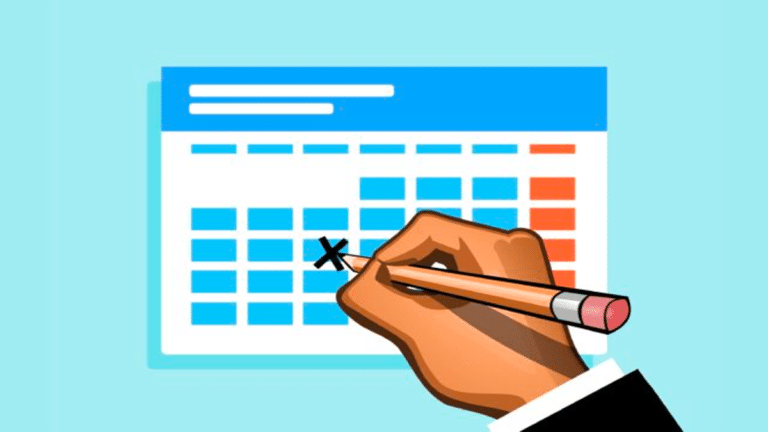Building wealth can be like losing weight. It’s not always easy, but it is simple. We’ll show you the keys to building wealth.
Save Money
Building wealth will be faster and easier if you learn how to save money. Sure you can earn more, and we’ll get to that. But if you don’t know how to save, you can end up broke no matter how much you earn.
This is why you hear stories of lottery winners and pro athletes who managed to blow what seems to us more money than we could spend in ten lifetimes and in pretty short order too.
A big part of building wealth is determined by your habits. Here are some good ones to adopt.
Budget
We know you’re tired of hearing it, and we’re tired of saying it, but you cannot start building wealth if you have no idea how much money is coming in and how much is going out.
You don’t have to break it down in such detail that you’re budgeting separately for vegetables, fruits and meats when you food shop. That can all go under the category of “Groceries.”
But you do have to budget your money and track your spending. We all have spending leaks, categories we don’t realize just how much we’re spending on.
Going over your budget at the end of the month illuminates these things so you can take steps to correct them.
Mint is our go-to budgeting program because it’s so easy to use. For those who have irregular income (freelancers, real estate agents, etc. ) we like You Need a Budget. Setting up your budget doesn’t take long, and once things are dialed in, it doesn’t require much upkeep to stay on top of things.
If you have no idea where to start, you can use this simple formula to set up your budget. You can use the 50/30/20 method.
The 50% if for the essentials. This is where you budget things like your housing costs, utilities, transportation, and food.
The 30% is discretionary money. Your cell phone, cable, dinners out, entertainment expenses, vacations. This category could be cut if you really had to cut it, in the event of a job loss for example.
The 20% is for savings. If you have debt, that is included here. It also includes money that goes into your emergency fund, your 401k, your
If you have high-interest debt like credit card debt, you should reverse the 30/20% categories. Put 30% of your income towards paying that debt off and the 20% of discretionary spending.
Housing
For most of us, our rent or mortgage payment is our biggest expense. Within the 50% we spoke of above, if you keep your housing costs to 30% of that, you are doing well, really well. In 2015, more than 11 million US households spent more than 50% of their income on rent.
The lower you can keep your housing costs, the more you can focus on building wealth. We buy way more house than we need and then we spend more money to fill that big house up with stuff.
Downsize your stuff. Sell it, give it away, throw it away. The less stuff you have, the smaller and more affordable your home can be. You’ll be more portable too.
If you get a great job opportunity half a world away, you have less stuff to pack up and drag along. It’s psychologically freeing to have less stuff as well.
It takes less time to clean your house and find things you already have when you don’t have a house (and attic and basement and garage and storage unit) full of stuff.
Cars
One of the stereotypes about rich people is that they drive flashy cars. And that’s probably true. But you don’t want to be rich. You want to be wealthy. And the habits of rich people are very different to those of wealthy people.
Buying a brand-new car is nearly always a poor financial decision. The minute you drive it off the lot, it loses 11% or more of its value. Unless you paid cash, you took out a loan to buy the car which means you’re paying interest on a depreciating asset.
That doesn’t mean you should drive a broken-down old hoopty. You want a car that is reliable gets good gas mileage and isn’t expensive to insure. Ideally, you want a car you can pay cash for, but it still has the qualities just listed.
That’s not always possible, but there’s a big difference between taking out a $10,000 loan for a good used car and a $30,000 loan for a brand new car.
Shop Smart
When you have to buy something, do a little research first to find something that will be of good quality. You may pay a little more upfront, but when you buy something that lasts, you save money overall because you don’t have to replace a broken or worn out the item as often. Or ever in the case of things like cast iron cookware.
You might have to delay the purchase in order to save up for the more expensive item, but delayed gratification is a good thing to practice. In fact, one good way to curb an overspending habit is the 30-day list.
If you are considering making a pretty sizeable or an impulse purchase, write it on a piece of paper and wait 30 days. At the end of those 30 days, you still want it; then you can buy it. But what will likely happen is that you won’t even remember wanting it.
I don’t like to fuss around with coupons in the grocery store. Saving .25 on something isn’t going to change my life, and grocery coupons are usually for processed junk anyway.
But if you are going to make a bigger purchase than just a few grocery items get into the habit of Googling the item you want to purchase or the store you are shopping from and the words “discount,” “coupon,” or “discount code.”
You’ll be amazed at what you find. I randomly chose Uniqlo and Googled “Uniqlo discount code.” I found two different sites offering $10 off for men’s’ down coats and sweaters.
If you’re making a big purchase like furniture, appliances or electronics, know the best time of year to buy those things. You can find a list at Consumer Reports.
Don’t turn your nose up at second-hand items. Thrifting can be a lot of fun, and you will be amazed at how many brands of new stuff including clothes and small appliances, people donate to second-hand shops.
It’s not always great if you have something very specific in mind like a red wool sweater, size medium but if you are shopping more generally, hitting a thrift store will save you a lot of money.
It’s also green. Repairing rather than replacing is green too and a good way to save money. If it’s not working, there is a Youtube tutorial out there that will tell you how to fix it yourself. Calling for a repair person costs time and money and so does replacing something that has stopped working.
You won’t be able to make repairs yourself in every case but at least give it a try before throwing in the towel and throwing money at the problem.
Automate
Have you ever been hit with a fee for paying a bill late not because you didn’t have the money but because you just forgot? If you automate your bill paying, you’ll never pay a late fee again. You can set up the automatic bill through most banks online and schedule the payment a few days before the due date.
You should still look at your bills, there could be an error, and you could end up paying more than you owe, but there’s no reason to pay them by hand every month.
Your Personal Life
The things you do and the people you allow into your personal life can have a big impact, for good or bad, on your ability to build wealth.
Money Can Buy Happiness
It really can despite the old cliche. But you have to know what to spend money on to buy happiness. We are made happier when we buy experiences rather than things. And it makes sense when you think about it.
Think of the last concert or play or art exhibit you went to. Did you enjoy yourself, spend time with friends, talk about it for days or weeks after, tell other people about it? Now think of the last thing you bought. Can you say the same for that thing?
The other way spending money can make you happy is through charitable giving. Find a cause you care about and make a donation. It doesn’t have to be a lot. We feel happy when we help others.
Learn How to Have Fun for Free
Well, it doesn’t always have to be free. Some of us have expensive hobbies, like golf or scuba diving. And there is nothing wrong with that if you can afford it. But you should be able to have fun without spending a ton of money too.
Going for a walk in the park, exploring a new part of your city, wandering around a museum is a free or inexpensive ways to spend time. A lot of us go shopping out of boredom and end up spending money on stuff we don’t need. Find other ways to fill your time.
Hanging out with friends and family shouldn’t always cost a fortune either. A lot of us tend to choose the default option of drinks or dinner when we want to see our friends or spend time with our families, but that can get expensive fast.
Have a potluck gathering, pack a picnic and take it to the park, invite a few people over for board games and order a pizza. These things can all be more fun and cheaper than dinner and drinks.
Choose Your Partner Carefully
Love can be blind, and if you don’t have your eyes open where money is concerned, you can make a big mistake. Fights over money are one of the leading causes of stress and divorce in a relationship.
Finding out after the ceremony that your spouse has $50,000 in credit card debt, a credit score in the basement, and no real desire to curb their spending is too late.
Money can be an uncomfortable topic, but it has to be discussed. When things start to get serious, sit down and have a talk about money. Here are some important things to ask:
How much do you earn?
You might think you have at least a ballpark idea what your partner earns, but you can’t be sure until you ask. Maybe all those expensive dinners they’ve wooed you with have been charged to nearly maxed out credit cards.
How much and what kind of debt do you have?
A lot of debt isn’t ideal but what’s probably more important than the number is what kind of debt is it and how quickly it’s being paid down. Having $150,000 in medical school debt for a working doctor is a different thing than having $50,000 in credit card debt on a restaurant server’s income.
How much do you have saved, and where?
Having anything saved is a good start since so many people don’t. Where the money is invested can be telling too. Is it buried in the backyard? Maybe your partner is afraid of banks or the stock market. Are they day trading? Maybe they’re not risk-averse enough.
Do they have an emergency fund? We all should and ideally it is invested somewhere safe like
Will we combine our money or leave it separate?
There are lots of ways to arrange money in a marriage, combine it all, keep it completely separate, or maintain three accounts, yours, mine, and ours. They each have their pros and cons so discuss them and agree on one.
Do you keep a budget?
We’ve shown you why a budget is so important to building wealth and if there are two people trying to do that together and only one of them uses a budget, things won’t work. The budgets don’t have to have the same level of detail.
You might keep track of every cent while your partner uses the broader 50/30/20 method. That’s okay, what matters is that they have some kind of budget.
This is just a tiny sample of the kind of questions you need to ask and answer yourself when things start to look serious. Kids, parents, where to live, the list goes on. We just want to make sure that you understand you have to discuss money and be, for the most part, on the same page with anyone you are going to legally bind yourself to.
Don’t Have Kids
Harsh but true. It costs more than a quarter of a million dollars to raise one to age 17, so that doesn’t include college expenses. That’s not all at once of course; it works out to between $12,350-14,000 a year for a middle-income family.
Daycare can be so expensive that one parent (usually mom) quits their job because the salary is just covering the cost, so it makes more financial sense not to work. That means time out of the workforce which can have a financial impact in the future.
I know this won’t dissuade most people, but the financial aspects of raising kids need to be considered. You don’t have to be rich to be a good parent, but kids cost money, and you will have a lot more of it for yourself if you stay childfree.
Talk to Your Parents
If talking to a partner about money is uncomfortable, talking to your parents about it can be even worse. We all like to think of our parents as capable people whose job it is to take care of us. But the day may come when you need to take care of them.
That can mean anything from checking in on them from time to time to footing the entire cost of their care to letting them move in with you. If you don’t talk about their plans for the day they can’t fully take care of themselves anymore, you can’t know what will be expected of you.
Here are some important things to discuss with your parents.
Do they have a will including a living will?
You need to know who gets what when they die and what kind of medical care they want if they cannot speak for themselves.
What kind of medical insurance do they have?
Having Medicare alone is not enough. There are a lot of medical expenses it doesn’t cover including many types of long-term care. Dying like everything else in America is not free.
How much are their monthly expenses and what kind of savings do they have?
If they numbers are not working out, you may need to discuss cutting expenses, possibly down sizing their home if they’re empty nesters.
Where are any documents you might need to fulfill their wishes in the event of hospitalization or death?
It’s no good knowing what your parents want if you don’t know how to prove it. They should tell you where to find things like their wills, their attorney’s contact information, and any passwords you might need for various accounts.
This is by no means an exhaustive list, but it will at least give you a starting point.
The People You Know
We are an average of the five people we spend the most time with. To some extent, their habits and behaviors influence our own. That’s why it’s so important to pick your spouse carefully. Make sure you surround yourself with people who share your habits and values.
If your friends are all big spenders (whether they can actually afford to be or if they charge their whole lives to credit cards), you are going to spend too much money when you’re with them. If your spouse keeps a budget and saves money for the future, you will be encouraged to do that.
Get our best strategies, tools, and support sent straight to your inbox.
Make More Money
A lot of us don’t want to fuss around bringing our lunches to work and researching the best cell phone plan. We would just rather make more money than worry about counting pennies. So how do you make more money?
Job Hop
For most of us, our regular job will be our biggest source of income. The average raise is about 3%, again, not a life changing amount. If you want a big jump in income, become a job jumper and do it every two years. Those who jump around that often will make 50% more over their lifetime compared to those who stayed at jobs longer.
Start networking, polish up your resume, and learn how to negotiate. Staying in one place too long will hamper your wealth building.
Improve Your Skills
No matter how long you’ve been in a certain industry, there are always ways to improve your performance. Take a public speaking class, get some additional certification or find a training seminar you could attend.
If you’re not sure what you can improve upon that would help you make more money in your current job, take a look at job openings for a similar but higher position in another company. Read the job requirements. Is there anything they’re looking for that you are lacking? That’s a good place to start.
Multiple Sources
Anyone can lose their job, and you may not always find a new one right away. That’s why you need money coming in from more than one source. It doesn’t have to be a ton of money, but something in case your primary source of income is interrupted.
This money can come from any number of places, a part-time job you have on the weekend, a side gig like freelancing, a hobby like making and selling things on Etsy, Amazon Handmade or at craft fairs, tutoring, or income-generating investments like
Even if it’s only a few hundred bucks a month, that can really make a difference financially. Either you don’t have to dip so deeply into your emergency fund, you don’t have to go into credit card debt charging all your expenses, or you can take your time finding the right job instead of taking the first thing offered out of desperation.
Debt
Having debt while you’re building wealth is like driving with the emergency break engaged. You might get there eventually, but it will take longer and put wear and tear on your car.
Get Rid of What You Can
There are ways of reducing your debt without paying it off. If you have credit card debt, first look into doing a balance transfer to a card offering 0% APR. Some cards offer that introductory rate for as long as 21 months. That’s almost two years to work on the balance without having to pay interest.
Just be sure you do pay off the entire balance. Once the 0% APR ends, you’ll have to pay interest on the remaining balance and possibly at a higher rate than the card you transferred the debt from.
You can also look into getting a loan from like Upgrade. They will loan you money to pay off the credit cards. You still owe money, but now you owe it to them at a much lower interest rate than you were paying to the credit card company.
You can also look into getting a personal loan from your bank to pay off credit card debt.
If neither of the above are options, have a plan to pay off debt. Just throwing extra money at credit card debt randomly won’t help you pay it off faster and won’t save you money on interest. There are two methods you can use; snowballing and stacking. We wrote a lengthy article on this but here is the gist:
Snowballing means listing all of your debts in order of smallest to highest dollar amount and then using any extra money to pay off the smallest balance while only paying the minimums on the others.
To use the stacking method, you list your debts in order of highest to lowest interest rate, regardless of the dollar amount of the debt. You throw as much money as you can at the debt with the highest rate of interest. Both have their advantages, but stacking will save you the most money on interest.
If you’re a homeowner, you may be able to eliminate some of your mortgage debt by refinancing. Imagine you refinance and get one percent off your original interest rate. Now, one percent doesn’t sound like much if you’re talking about a raise, but when it comes to interest rates, a one percent difference is enormous!
If you bought a home for $300,000 with 20% down and a fixed rate 30-year mortgage at 4.5% versus 5.5%, you would save $52,794 in interest!
If you have student loan debt, you can refinance that too with a company like Earnest. It may lower your interest rate and your monthly payments. Just be sure you understand that if you refinance federal student loan debt, you are losing certain protections.
Credit Score
One of the most effective ways to avoid debt is to avoid paying interest. While you can’t always avoid it entirely, no bank is going to give you a 0% interest mortgage; you can minimize the interest you pay when you have to borrow money. By having a great credit score.
Your credit score is made up of six components. This number tells lenders how much of a risk they’re taking when they loan you money for things like a home or a car. The higher your credit score, the lower rate of interest you will get on those loans. And we saw in the example of refinancing your mortgage how much difference even 1% can make.
A credit score of 740 or above will get you the best interest rates. If your score could be improved, here are some ways to do it.
Don’t Get a Tax Refund
We all look forward to getting a nice big return come tax time but we shouldn’t. When you get a tax refund, you’ve given the government an interest-free loan. Instead of doing that, you should be putting that money to work for you by paying off debt or investing.
If you’re getting a few hundred bucks back, don’t sweat it. But if it’s a few thousand, you’ll want to give your employer a new W-4. You can use this calculator to determine the changes you need to make.
Investing
The key to building wealth is investing.
Educate Yourself
Investing can be intimidating if you don’t know much about it. But investing doesn’t have to be complicated. We have written a lot on investing for beginners. If it’s all Greek to you, start with Investing 101: An Introduction to Simple Investing.
Once you understand the basics, you can move onto something a little more complicated and dig into Investment Strategy: The Ulitmate Blueprint. Andrew breaks down exactly what to do with your money if your goal is building wealth.
Don’t Procrastinate
The earlier you start investing, the more time your money has to grow. Because compound interest is so powerful, there is no substitute for time. Here an example:
If you invested $5,000 a year between the ages of 25-35 at a return of 8% a year, you would have $615,580.00 at retirement. If you invest $5,000 a year from ages 35-60, you would have just $431,754.00 at retirement.
The early investor invested just $55,000 compared to the late investor’s $125,000 and ended up with $183,826 more! More money cannot make up for the loss of time.
Free Money
An employer sponsored 401k is the introduction to investing for many people, and it’s a good place to start. You just fill out a few forms and HR takes care of the rest. Even if a 401k isn’t the best place to invest (the fees can be high, and the choice is limited), there are two features that can make it worthwhile.
For those who have a hard time-saving money to invest, 401k’s are great because the money is taken out of their paycheck before they can spend it. It’s automatically deducted. The other good reason to invest in your employer’s 401k is matching. If your employer offers matching contributions, take it! Even if you have debt to pay off, that matching is free money.
Fees
Even experienced investors often don’t give much thought to fees, but you can lose as much as one-third of your retirement money to these fees over time.
You might know what percentage you are paying but how much is that in real dollars? The average actively managed fund charges 1.25%. That doesn’t sound like much, but over time, it adds up.
It adds up to a lot. If you invest $100,000 in a fund with a 1% annual fee, which is less than average, it will cost you nearly $28,000 over twenty years, according to Securities and Exchange Commission calculations. If you had that $28,000 to invest, you would have earned another $12,000.
Under 1% is a good percentage to look for and you’ll find fees that low and lower with Index Funds and ETF’s. The average traditional index fund has a fee of 0.74%, and the average ETF fee is 0.44%. Vanguard’s lowest-fee fund is the Vanguard 500. The fee is 0.17%.
If you’re choosing funds through your employer, it’s likely that no one in your HR department is an expert investment advisor so don’t count on them to explain the fees to you or even know what you’re talking about.
Read the prospectus of each choice. That’s where you’ll find information about the fees charged. If you don’t like what you see, do some research on your own to find a fund with better fees and suggest it be included in the choices.
You can use Personal Capital’s Fee Analyzer to find out how much you’re paying in fees. The site will analyze your investments to uncover where you are paying fees and how much you’re paying.
Tax Advantaged Investing
Taxes and interest are two of the biggest drains when you’re building wealth. There are investment vehicles that allow you to minimize taxes on those investments. Your 401k is one type. Your contribution comes out of your paycheck before income tax is deducted which means your taxable income is reduced.
The money grows tax-free in the account, and you are only taxed on it when you withdraw money after you’ve retired. For most of us, our income tax rate is lower during retirement so we pay less tax on that money than if we had paid taxes on it during our working life.
IRA’s are also tax-advantaged investment accounts. There are two types; Roth and Traditional.
A Roth IRA is taxed upfront and not upon withdrawal after age 59 1/2. For 2017, the contribution limits are the same as for a Traditional IRA.
A Traditional IRA is not taxed upfront but at the point of withdrawal. The money grows tax-deferred. Upon withdrawal after age 59 1/2, the money is taxed as income. For 2017, you can contribute up to $5,500, $6,500 if you are aged 50 or older.
Which is better? When you’re in the prime of your career, you’re being taxed at a higher than you are likely to be in the future. You want the tax advantage of the Traditional IRA during your highest earning years because once you give up those tax advantages, they’re gone forever.
If you really want to minimize taxes check out our episode on Advanced IRA Strategies. It will give you a fuller explanation, but this is the gist:
After you leave your job, you will have less taxable income. During this time, you slowly roll the Traditional IRA to a Roth. This rollover counts as ordinary income so to do this tax-free, convert a dollar amount equal to your tax deductions and exemptions.
Real Estate
One of the biggest components of building wealth is passive income. Passive income is money coming in that you don’t have to do much or anything to earn. It could be royalties from a book you wrote, dividends from stocks you own, or our favorite, income from rental properties.
What if you don’t want the responsibility of being a landlord, fixing clogged drains and leaking toilets? If you want the income of
A good turnkey management company will find the property, renovate it, and put a tenant in place and deal with any repairs and maintenance that might need to be done.
If even turnkey rentals sound like more involvement than you’re comfortable with, you can still invest in real estate. Fundrise is an online investing platform that allows you to make real estate investments and a virtual space for companies who need financing for their real estate projects to find investors who will buy shares in that project.
Building Wealth Begins Today
Financial independence is the goal most of us have in mind when we think of building wealth. We aren’t interested in the mindless accumulation of money; we want to use our money to buy our freedom. And that’s what building wealth allows you to do.
Stop dreaming and start building.






